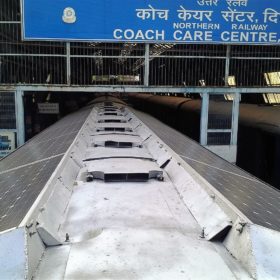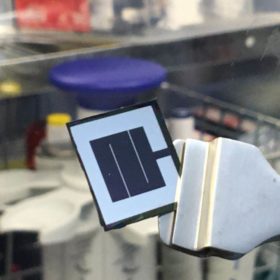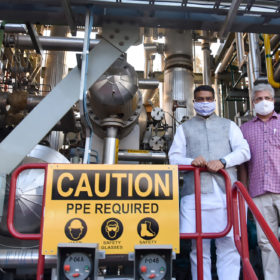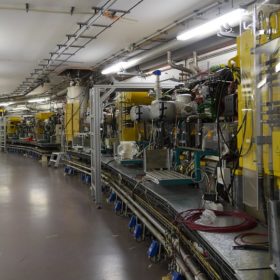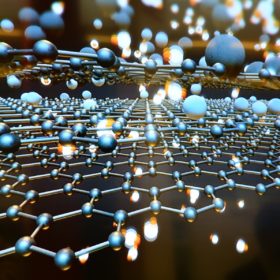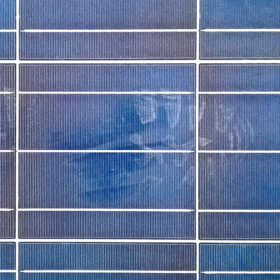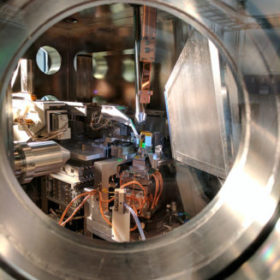TERI, REMC sign MoU on renewables
Under the agreement, The Energy and Resources Institute (TERI) will provide research and technical know-how to support Indian Railways in its renewable energy and energy-efficiency projects.
India and Israel to work together on perovskite solar cells and lithium sulfur batteries
Low-cost batteries and novel perovskite materials are among the topics selected for joint research and development.
IndianOil turns to gas, not green hydrogen, to reduce Delhi bus emissions
The public sector energy company has opened a compact reformer plant at Delhi Transport Corporation’s Rajghat bus depot. The facility will produce hydrogen-enriched compressed natural gas as a bus fuel. A trial period will see 50 gas-powered buses run on the blended fuel with fuel economy and emissions monitored.
IIT Bombay group suggests method of detecting early-stage discoloration in EVA encapsulants
A new, non-destructive technique has been proposed by researchers who say identifying early-stage discoloration in EVA encapsulants can help detect degradation in solar panels before power output is affected. The IIT Bombay group used an ultraviolet accelerated aging test during 34 days on three encapsulant samples.
Speeding up energy storage with pseudocapacitors
Scientists at Germany’s Helmholtz Zentrum Berlin have made a discovery they say could greatly increase the energy storage capacity of titanium-based ‘MXene’ pseudocapacitors, ultimately leading to faster-charging batteries. The group found adding urea molecules between MXene layers increased the material’s storage capacity by up to 56%.
Battery scientists make a cracking observation
Scientists at the Georgia Institute of Technology in the U.S. used x-ray imaging to observe cracks forming in a solid state lithium battery, a discovery they say changes the understanding of performance of solid state batteries and which could lead to more durable systems.
Researchers develop method to synthesize graphene from abundant eucalyptus bark
Australian and Indian scientists have developed a method of manufacturing soluble graphene in a cost-effective and eco-friendly way from one of Australia’s most common resources, gum trees.
Australia considers how to profitably upcycle 80 million tons of PV waste
With concern rising about future solar waste in India, research by the University of New South Wales has examined the economic barriers, technologies and opportunities offered by recycling end-of-life silicon PV modules.
Understanding why cesium and rubidium salt improve the yield of perovskite solar cells
The addition of either salt enables more even distribution of halide atoms within the perovskite material – key to increasing cell conversion efficiency. The explanation should speed up the process of identifying the best perovskite mixes.
New approach to measure solar potential of urban areas could be used in all climates
Dutch researchers have come up with a system they claim has a maximum estimation error of less than 10% and which reduces the computational requirements for calculating the output of PV systems in complex environments. The approach is based on the correlation between a skyline’s profile and annual irradiation.
